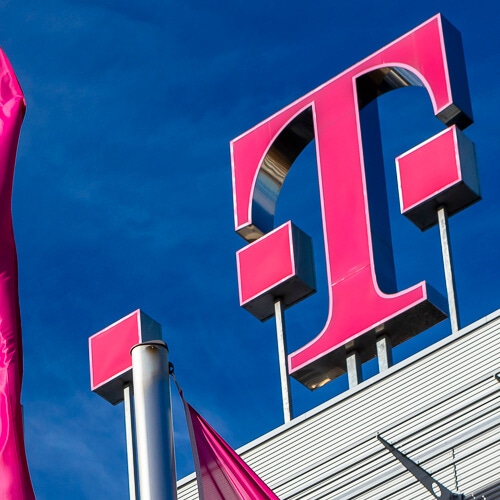Eurobites: Deutsche Telekom unit creates jobs in automotive
Also in today's EMEA regional roundup: Vodacom revenue rises; Proximus bags spectrum in the 1400MHz band; Vodafone helps explore links between food and COVID-19.

Also in today's EMEA regional roundup: Vodacom revenue rises; Proximus bags spectrum in the 1400MHz band; Vodafone helps explore links between food and COVID-19.
T-Systems, Deutsche Telekom's IT services unit, plans to create 600 jobs in the automotive industry by 2023, specializing in four areas: vehicle software and connectivity; digital customer experiences, the digitization of the company, and secure cloud computing. Around 300 of the new recruits will be based at its site in Wolfsburg, Germany. T-Systems already installs software updates via mobile communications for more than 25 million vehicles. Figure 1:
 (Source: Deutsche Telekom)
(Source: Deutsche Telekom)South Africa-based Vodacom saw group revenue rise 5.2% year-on-year in the first quarter, to 26.1 billion South African rand (US$1.52 billion). During the quarter, Vodacom began establishing a separate legal entity for its South African towerco, which will be 100% owned by Vodacom. Financial services remain a focal point for the company, with its M-Pesa mobile money platform processing $340 billion over the last 12 months, up 20.2%.
Belgium's Proximus has acquired half – 45MHz – of the available spectrum rights in the 1400MHz band for €109 million ($111 million). This latest addition comes on top of its recently acquired spectrum package in the 900MHz, 1800MHz and 2100MHz, 700MHz and 3600MHz bands. The whole caboodle represents a total investment of €600 million ($611 million) for a period of 20 years (18 years for the 3600MHz band).
Vodafone UK plans to use the processing power of people's smartphones to explore suspected links between diet and "long COVID." The project is the latest to be facilitated by the Vodafone Foundation's DreamLab app, which those wanting to lend a hand with the data processing need to download. Led by researchers at Imperial College London, the project follows previous analysis of food biomolecules and existing drugs to fight cancer and COVID-19. More than 2 million volunteers have downloaded the DreamLab app to date.
Uh-oh. It's worse than we thought. Instagram, TikTok and YouTube are now the three main news sources for teens in the UK, shoving boring old TV news featuring actual journalists an' all back into fourth place and beyond. That's according to a new report, New Consumption in the UK, from communications regulator Ofcom. Just 24% of 12- to 15-year-olds claim to use BBC One or Two for news in 2022, down from 45% in 2018. And while teens remain more skeptical about news on social media than that from other sources, more than half of YouTube (51%) and Twitter (52%) users say they trust these platforms.
— Paul Rainford, Assistant Editor, Europe, Light Reading
Read more about:
EuropeAbout the Author(s)
You May Also Like












